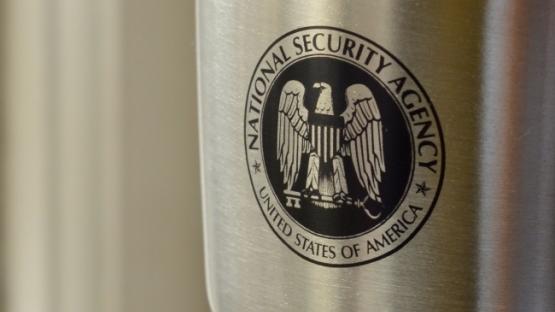Looking at PRISM - NSA's mass surveillance program

UPDATE: The Guardian has just reported that "The UK's electronic eavesdropping and security agency, GCHQ, has been secretly gathering intelligence from the world's biggest internet companies through a covertly run operation set up by America's top spy agency."
This recent news reveals a long-held suspicion that the GCHQ had the very powers they were seeking to place on a statutory footing with the Snooper Charter, a bill that was knocked back for being unnecessary and disproportionate. Keeping the public in the dark about secretive and potentially unlawful programs must stop - and greater oversight is needed to ensure human rights are not being trampled.
The worst fears and suspicions by privacy advocates have been confirmed. Only hours after news broke that the United States was collecting the phone records of millions of Americans, leaked documents showed that the US intelligence community, through a top secret program authorized by federal secret courts, are conducting mass surveillance on foreign communications traffic by tapping into the systems of technology giants like Apple, Google, Microsoft, and Facebook.
Combined, these two revelations expose a widespread and invasive spying regime operated by the US National Security Agency, with the complicity of officials entrusted to protect the rights of citizens, carried out by the world's supposed beacon of democracy, and underpin the lack of legal protections in place to protect the privacy of people around the world. These programs, in conjunction, mean that everyone, anywhere, is subject to surveillance. As a source told the Washington Post, "They quite literally can watch your ideas form as you type”.
Since many of the world's leading technology companies are based in the US, essentially anyone who participates in our interconnected world and uses popular services like Google or Skype can have their privacy violated through the PRISM program. This is the case that the US government can have access much of the world's data, by default, with no recourse.
Officials and lawmakers have given their justifications for the mass surveillance program, however it is of little comfort. The White House has said that the program's reauthorisation was "after extensive debate". However, as the Washington Post story clearly states, lawmakers who knew of the program were gagged from publicly discussing the top secret program. What is incredibly disheartening is not just that this program exists, but that it was carried out with the knowledge from every branch of the US government. What's worse, when challenged about the existence of these surveillance programs, Congress shrugged its shoulders with little care of the rights of the people these very programs violate. The connivance of the three branches of the US government, models of a strong, checked democracy for the world to emulate, demonstrates a complete failure of systems entrusted with power of secret surveillance.
For the past 12 years the US Government has repeatedly undermined European processes to develop a new legal framework for privacy. After 9/11 the Bush Administration asked Europe to weaken protections around communications surveillance. Then the Bush Administration demanded that European airlines submit detailed information on travellers to US agencies. This was followed by an initiative where the Bush Administration tapped into global financial flows by gaining access to the SWIFT financial network. In recent months the Obama Administration has responded to Europeans' concerns about the US Government's power to conduct surveillance and undermine consumers' rights to privacy by stating that this was impossible under US law.
After these bombshell discoveries, there remains many questions surrounding the PRISM program. The method of surveillance -- how the government actually retrieves the information from the companies -- remain unclear. At this moment, companies are denying their knowledge of the PRISM program, which contradicts information contained in the leaked documents. However, it is possible that companies would not be aware of the government tapping into their servers. Until we know whether this information was obtained through filters, interception, or some another method, it is difficult to know how the breadth of access the NSA has. The "how" is just as important as the "what" in this scenario.
PRISM is not a one-off initiative, but the most egregious of a concerted effort over the last decade to place American intelligence capability above all other considerations.



